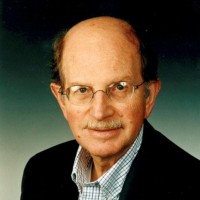
I want to ask the related questions of where we are and where we are headed in the digital humanities. Since I am an historian, I approach these questions by asking where we have been and how we got here. Digital Humanities 1.0 was the use of information technology and computing to produce forms of scholarship that literally could not be done in the analog age: the encoding of text (TEI), computational linguistics and the creation of humanities databases (Perseus) were the two most prominent examples. DH 2.0 was the era inaugurated by IATH and scholars such as Jerry McGann, Ed Ayers and others in reconceptualizing traditional humanities questions through the intellectual power of technology — relating text to image, creating complexly interrelated databases, use of large-scale digitization. DH 3.0 is where I hope we are, searching for a new order of technical possibilities that will change modes of thought. DH 3.0 assumes the technology and moves on to give primary consideration to intellectual problems that were inconceivable in either the analog or early digital eras. The challenge is no longer either the usage of technology or the linking of technology to more or less traditional humanities problems, but reconceptualizing the problems. But of course all of this assumes what is not true — that we put a digital humanities infrastructure into place.
Stanley Katz is President Emeritus of the American Council of Learned Societies, the leading organization in humanistic scholarship and education in the United States. Mr. Katz graduated magna cum laude from Harvard University in 1955 with a major in English History and Literature. He received his M.A. from Harvard in American History in 1959 and his Ph.D. in the same field from Harvard in 1961. He attended Harvard Law School in 1969-70. His recent research focuses upon the relationship of civil society and constitutionalism to democracy, and upon the relationship of the United States to the international human rights regime. Formerly Class of 1921 Bicentennial Professor of the History of American Law and Liberty at Princeton University, Mr. Katz is a leading expert on American legal and constitutional history, and on philanthropy and non-profit institutions. The author and editor of numerous books and articles, Mr. Katz has served as President of the Organization of American Historians and the American Society for Legal History and as Vice President of the Research Division of the American Historical Association. He is a member of the Board of Trustees of the Newberry Library, the Social Science Research Council, the Copyright Clearance Center and numerous other institutions. He also currently serves as Chair of the American Council of Learned Societies/Social Science Research Council Working Group on Cuba. Katz is a member of the New Jersey Council for the Humanities, the American Antiquarian Society, the American Philosophical Society; a Fellow of the American Society for Legal History, the American Academy of Arts and Sciences, and the Society of American Historians; and a Corresponding Member of the Massachusetts Historical Society. He has honorary degrees from several universities.
A continuously updated schedule of talks is also available on the Digital Dialogues webpage.
Unable to attend the events in person? Archived podcasts can be found on the MITH website, and you can follow our Digital Dialogues Twitter account @digdialog as well as the Twitter hashtag #mithdd to keep up with live tweets from our sessions. Viewers can watch the live stream as well.
All talks free and open to the public. Attendees are welcome to bring their own lunches.
Contact: MITH (mith.umd.edu, mith@umd.edu, 301.405.8927).
